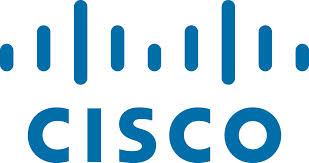Friday, May 5, 2006
Cable VoIP + WiFi = MSO Advantage
Earlier today I mentioned I had another post coming about some interesting news that's good for the cable guys.
BridgePort Networks has been a leader in developing FMC platforms, and yesterday they announced a global reseller agreement with Siemens . Their NomadicONE server will be integrated with the Siemens IMS platform, and will enable the seamless handover of landline calls to WiFi and vice versa. This means that carriers can now support calls to and from a single phone number across different networks, and perhaps more importantly, it enables end-to-end VoIP.
This is great news for MSOs, and bad news for RBOCs - at least initially. And of course, it's terrific news for BridgePort who now get a global stage to strut their technology on.
Siemens has been particularly successful selling into U.S. MSOs, and strong evidence of this came earlier this week with news of a successful FMC trial with Time Warner Cable to support their IMS platform.
So, with these news items, it's not hard to see how together, Time Warner Cable, Siemens and Bridgeport can now create an infrastructure to keep subscriber calls off the PSTN altogether, and set the stage for more lucrative multimedia applications. What works for Time Warner Cable will work for the other MSOs, especially since the majors are working closely with Sprint/Nextel for the underlying network infrastructure and EV-DO access. Put this all together, and the MSOs have a pretty strong triple play, and if executed well, an even stronger quad play.
As a short coda, there's a bit of a Canadian flavor to this story. BridgePort, of course, is focused on telcos too, and have been working with Bell Canada for some time. Furthermore, BCE Capital is one of their investors, and of their founders, Tom Carter, is Canadian.
Hat tip to Andy Abramson on this one, and I'm sure Andy would agree that one of his clients, Iotum, would bring a lot to the party here. Imagine this - Web 2.0-style intelligent call routing across fixed and mobile networks with a single phone number (mapped to a SIP address). The MSOs could do an awful lot with that and truly take VoIP to another level.
BridgePort Networks has been a leader in developing FMC platforms, and yesterday they announced a global reseller agreement with Siemens . Their NomadicONE server will be integrated with the Siemens IMS platform, and will enable the seamless handover of landline calls to WiFi and vice versa. This means that carriers can now support calls to and from a single phone number across different networks, and perhaps more importantly, it enables end-to-end VoIP.
This is great news for MSOs, and bad news for RBOCs - at least initially. And of course, it's terrific news for BridgePort who now get a global stage to strut their technology on.
Siemens has been particularly successful selling into U.S. MSOs, and strong evidence of this came earlier this week with news of a successful FMC trial with Time Warner Cable to support their IMS platform.
So, with these news items, it's not hard to see how together, Time Warner Cable, Siemens and Bridgeport can now create an infrastructure to keep subscriber calls off the PSTN altogether, and set the stage for more lucrative multimedia applications. What works for Time Warner Cable will work for the other MSOs, especially since the majors are working closely with Sprint/Nextel for the underlying network infrastructure and EV-DO access. Put this all together, and the MSOs have a pretty strong triple play, and if executed well, an even stronger quad play.
As a short coda, there's a bit of a Canadian flavor to this story. BridgePort, of course, is focused on telcos too, and have been working with Bell Canada for some time. Furthermore, BCE Capital is one of their investors, and of their founders, Tom Carter, is Canadian.
Hat tip to Andy Abramson on this one, and I'm sure Andy would agree that one of his clients, Iotum, would bring a lot to the party here. Imagine this - Web 2.0-style intelligent call routing across fixed and mobile networks with a single phone number (mapped to a SIP address). The MSOs could do an awful lot with that and truly take VoIP to another level.
Subscribe to:
Post Comments (Atom)











No comments:
Post a Comment